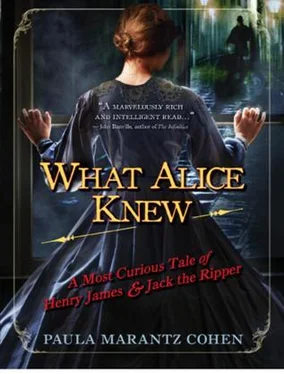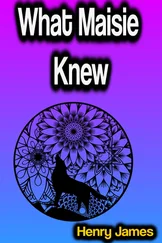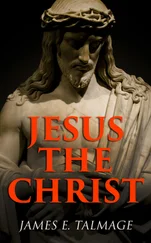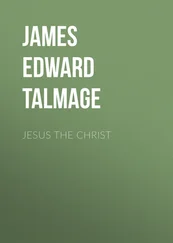“I do. I do. It’s from Annie—that’s a lady here I know who had a hard time of it. She been good to me, and so I said I’d do as I can for her over on this side.”
“What do you need to tell us about Annie?”
“I gotta tell that she been killed. Like me. On’y worse than me. Me dad, he jus’ hit me real hard, and it kinda busted my head. It weren’t that he meant to kill me; he just got mad like he always done, but this time he hit too hard. But Annie, she got stabbed with a knife. That’s worse than hitting.”
“Where was she stabbed?” asked Alice.
“Well, first in the neck, and then he cut her up down below in the privates.”
“She told you that?” asked Alice.
“That she did. Said as he cut things out of her horrible.”
“And what did the man look like who did this? Did she tell you?”
“He was dark and kinda small and spoke in that funny language them people speak.”
“A Jew, you mean?” asked Alice.
“I guess as it was, since he spoke them funny words, and he may’ve had the horns too, though she weren’t sure about that.”
The voice stopped, and Mrs. Lancaster shook again, more violently than before.
“What is it, Cassie? Is there something wrong?” asked Alice.
The voice suddenly grew shrill and upset. “No, no, I says it wrong! That wasn’t it as I wanted to say!” Mrs. Lancaster’s face contorted as if struggling to break free of something. “It was his hands I wanted to tell of. They was pretty hands, small and delicate-like—white, but not the fingers. They was stained.”
“With blood?” asked Alice.
“No, not blood. More black or sootish. Maybe tar or somethin’ like.”
There was more violent shaking, and Mrs. Lancaster frothed at the mouth. Something viscous emanated from her lips. She coughed a few times and took her hand away from Alice’s. The medium’s voice returned to its flat and nasal tone. “There it is: Annie Chapman.” Reaching up into the air, she grasped hold of a small image, seen in the dim light to be a picture of a woman—Annie Chapman, it appeared to be, if one had seen the woman’s face in the newspaper. As Mrs. Lancaster held the image a moment in front of her face, it just as suddenly disappeared.
“That’s it. It’s done,” said Mrs. Lancaster drily. “You can turn the lights on now.”
Katherine turned on the lights. Everyone was silent for a few moments.
“Impressive!” William finally said.
“Strenuous!” said Henry.
“Very interesting,” said Alice. She addressed Mrs. Lancaster. “I want to thank you for giving us your time.” She went over to the desk drawer and took out a bank note, which she handed to the woman, who nodded stiffly in response and turned to go.
“Not quite yet,” said Alice. “Would you mind, please, removing your shoes?”
“Excuse me?” said Mrs. Lancaster, looking offended.
“Remove your shoes. It shouldn’t be difficult. They look rather loose.”
“I will not remove my shoes!” declared Mrs. Lancaster.
“Then I must assume that you have practiced upon us through that means,” said Alice. “I have read about an American spiritualist who does all her tapping with her big toe—a highly developed big toe, not the sort one finds on most people, but a big toe nonetheless. Could we look at your big toe?”
“You most certainly cannot!” said Mrs. Lancaster.
“All right,” said Alice. “I’ll let you escape with your big toe unexamined. But there is one more thing.” She moved closer to the woman and then suddenly, with a surprisingly quick movement, squeezed her cheeks with one hand and with the other reached inside her mouth. She extracted a small piece of rubbery cloth and, opening it, displayed the imprint of a face. “Annie Chapman,” she announced. “Excellent sleight of hand and control of your jaw muscles for that trick.”
Mrs. Lancaster, the tip of whose aquiline nose had turned bright red, grabbed her coat and seemed about to flee the room when a tremor passed through her, and she stopped and turned to Alice. Once again, her angular face seemed to undergo a change, to soften in some inexplicable way. Although she spoke in her own voice, the words came slowly, as if they were being dictated. “He says he’s sorry,” she said, her eyes staring at Alice’s face, which had suddenly gone very white. “He says as he didn’t know what to do with a girl like you, so quick and nervous and bright. He appreciates the care you took of him at the end, but he couldn’t stay. He’s sorry, he says, he couldn’t give you what you needed. His heart aches for it.”
The two women stood for a moment in complete silence, staring at each other dumbly. Mrs. Lancaster then shook herself. Her soft gaze hardened into an angry glare, and turning on her loose pumps, she walked rapidly from the room.
“What in God’s name was that about?” said William.
“Nonsense,” said Alice softly.
“You’d think she was giving you a message from Father,” said Henry. “Not that it was particularly specific. ‘He’s sorry.’ What parent, I’d like to know, isn’t sorry?”
“Yes,” murmured Alice. “Anyone might have come up with that.”
“I have to say that you did an impressive job debunking her,” continued Henry, “though your method was a bit foolhardy. The woman could have bitten your fingers off.”
“You certainly humiliated her,” said William gruffly.
“Humiliated her !” Henry exclaimed. “She had the audacity to try to dupe us !”
“It may be more complicated than that,” said William.
Alice looked at her brother and seemed to pull herself out of a stupor. “The woman is a fraud,” she pronounced tersely. “She makes her money by taking advantage of people who are bereft or desperate or simply, like us, seeking the truth. How is that complicated?”
“Because there may be some truth mixed with the falsehood.”
“That’s absurd. The whole thing with the child reporting on what Annie Chapman said—there was a logical fallacy in it. Annie was dead after her throat was cut, and the premise of these things is that the spirits can report only what they saw while alive. But the child said Annie had been cut down below. That happened later and completely destroys the premise.”
“I noticed that,” said William. “But I also noticed the strange way in which she reported on the murderer’s hands. There was something oddly compelling there, almost as though she was being forced to tell the truth.”
“That was a dramatic touch,” piped in Henry. “The stained hands. I should like to use it in a story.”
“I say it’s all nonsense!” said Alice, addressing William irritably. “You cling to the notion that there is something beyond the simple reality of our existence; I am reconciled to the fact that there is not. I do not believe in fairy tales, but I do believe in evil men. And this one must be caught. Unfortunately, no spirit from another world is going to help us do it.”
The next morning, William and Abberline met, as agreed, at Paddington Station before sunrise. They had both brought their breakfasts, wrapped in brown paper, thus revealing a similarity in habit that made them glance with amusement at each other.
When William had proposed that they visit the Broadmoor Criminal Lunatic Asylum, the inspector had initially demurred. “I’ve sent many a man there,” he said, “but I don’t see what kind of good it would do talking to any of them.”
William argued otherwise. He had read in the police reports that one of the early Ripper suspects, John Pizer, known throughout the East End as Leather Apron, had been sent to Broadmoor. Even after the police had verified Pizer’s whereabouts at the time of the murders, there were people in Whitechapel who remained convinced of his guilt; after all, they said, the devil could be in two places at once.
Читать дальше












